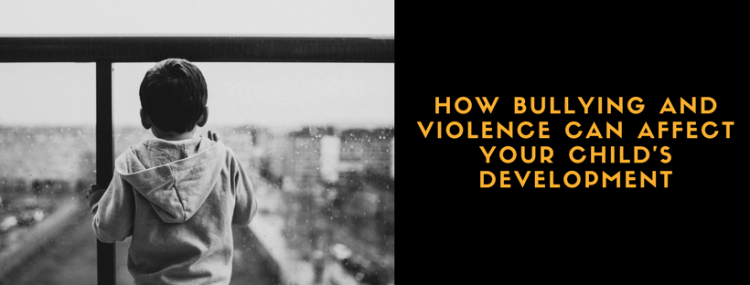
How Bullying and Violence can affect your child’s development
This article is all about How Bullying and Violence can affect your child’s development.
Bullying is unwanted, aggressive behavior among school aged children that involves a real or perceived power imbalance.
The behavior is repeated, or has the potential to be repeated, over time. Both kids who are bullied and who bully others may have serious, lasting problems.
Especially in young kids, this could be disastrous. Bullying can be anything ranging from Teasing and Name-calling to physical abuse.
Negative Effects of Bullying on Kids Here’s a list of the negative effects of bullying on kids
• Feel disconnected from school and not like school
• have lower academic outcomes, including lower attendance and completion rates
• Lack quality friendships at school
• display high levels of emotion that indicate vulnerability and low levels of resilience
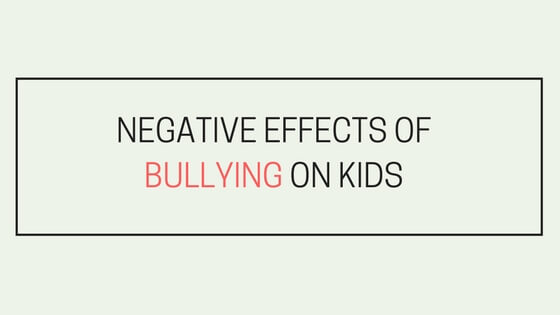
• Be less well accepted by peers, avoid conflict and be socially withdrawn
• Have low self-esteem
• Have depression, anxiety, feelings of loneliness and isolation
• have nightmares
• Feel wary or suspicious of others
• have an increased risk of depression and substance abuse
• In extreme cases, have a higher risk of suicide, however, the reasons why a person may be at risk of suicide are extremely complicated.
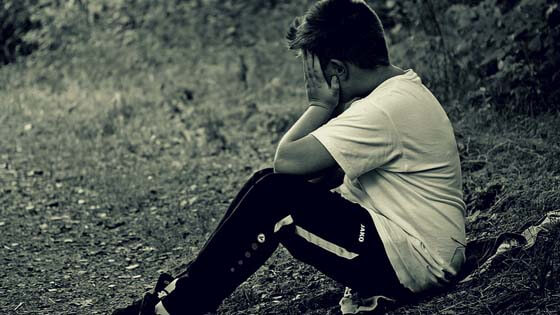
How do you know if your child is being bullied at school? How do you know if he is being subjected to other such violence in his school?
1. Unexplained physical marks, cuts, bruises, and scrapes
2. Unexplained loss of toys, school supplies, clothing, lunches, or money
3. Clothes, toys, books, electronic items are damaged or missing or child reports mysteriously “losing” possession
4. Doesn’t want to go to school or other activities with peers
5. Afraid of riding the school bus
6. Afraid to be left alone: wants you there at dismissal, suddenly clingy
7. Suddenly sullen, withdrawn, evasive; remarks about feeling lonely
8. Marked change in typical behavior or personality
9. Appears sad, moody, angry, anxious or depressed and that mood lasts with no known cause
10. Physical complaints; headaches, stomach aches, frequent visits the school nurse’s office
11. Difficulty sleeping, nightmares, cries self to sleep, bed wetting
12. Change in eating habits
13. Begins bullying siblings or younger kids. (Bullied children can sometimes flip their role and become the bully.)
14. Waits to get home to use the bathroom. (School and park bathrooms, because they are often not adult-supervised, can be hot spots for bullying).
15. Suddenly has fewer friends or doesn’t want to be with the “regular group”
16. Ravenous when he comes home. (Bullies can use extortion stealing a victim’s lunch money or lunch.)
17. Sudden and significant drop in grades. (Bullying can cause a child to have difficulty focusing and concentrating.)
18. Blames self for problems; feels “not good enough”
If your child shows even some of these symptoms, you can be sure your child is being bullied at school and you need to take action immediately.
What do you do to stop this? How can you stop the bullies from troubling your child any further?
Kids often don’t tell adults they’re bullied so you may have to voice your concerns.
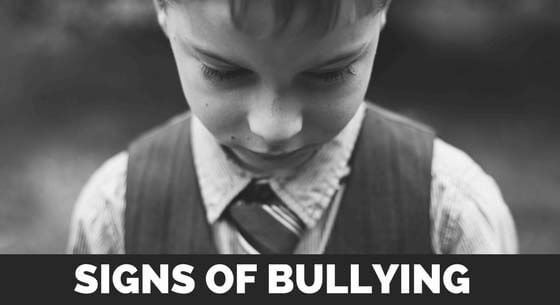
Review the signs of bullying and then ask direct questions.
- “You’re always hungry have you been eating your lunch?”
- “What are those wounds? How did you get hurt?”
- “Where are your stationery items? Did someone take them?”
Watch your child’s reactions. Often what a child doesn’t say may be more telling.
Tune into your child’s body language. Silence is often powerful. Make your child feel like you can help them and make them trust you and feel like you’re dependable.
Help them realize you’re stronger than the bully. Children who are embarrassed or humiliated about being bullied are unlikely to discuss it with their parents or teachers.
If you suspect bullying and your child won’t talk to you, then arrange a conference with a trusted adult who knows your child.
If your child has more than one teacher you may need to meet with each educator or coach.
Keep in mind that bullying usually does not happen in all school settings and in all classrooms.
The trick is to figure out if your child is bullied and then where and when it is happening, so you can get the right help for your child.
Bullying is a serious issue and doesn’t ever neglect to do whatever you can to help a child who is being bullied.
In this article, you learned about How Bullying and Violence can affect your child’s development.
Looking for a preschool franchise in India?

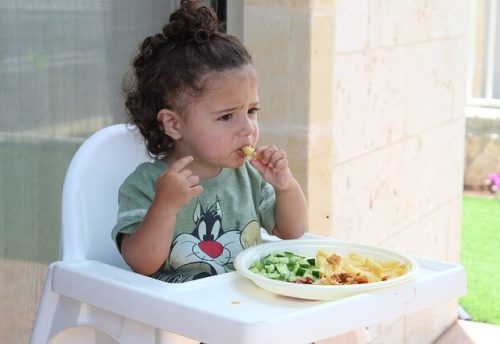

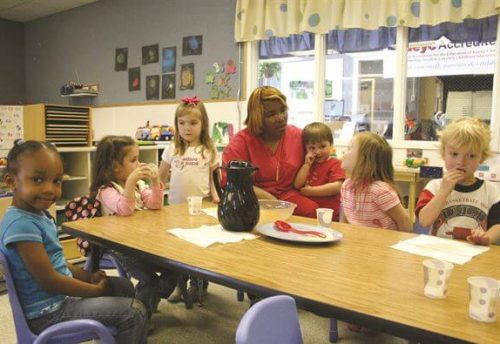

One Comment